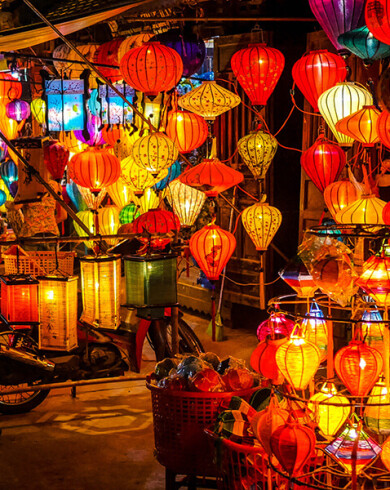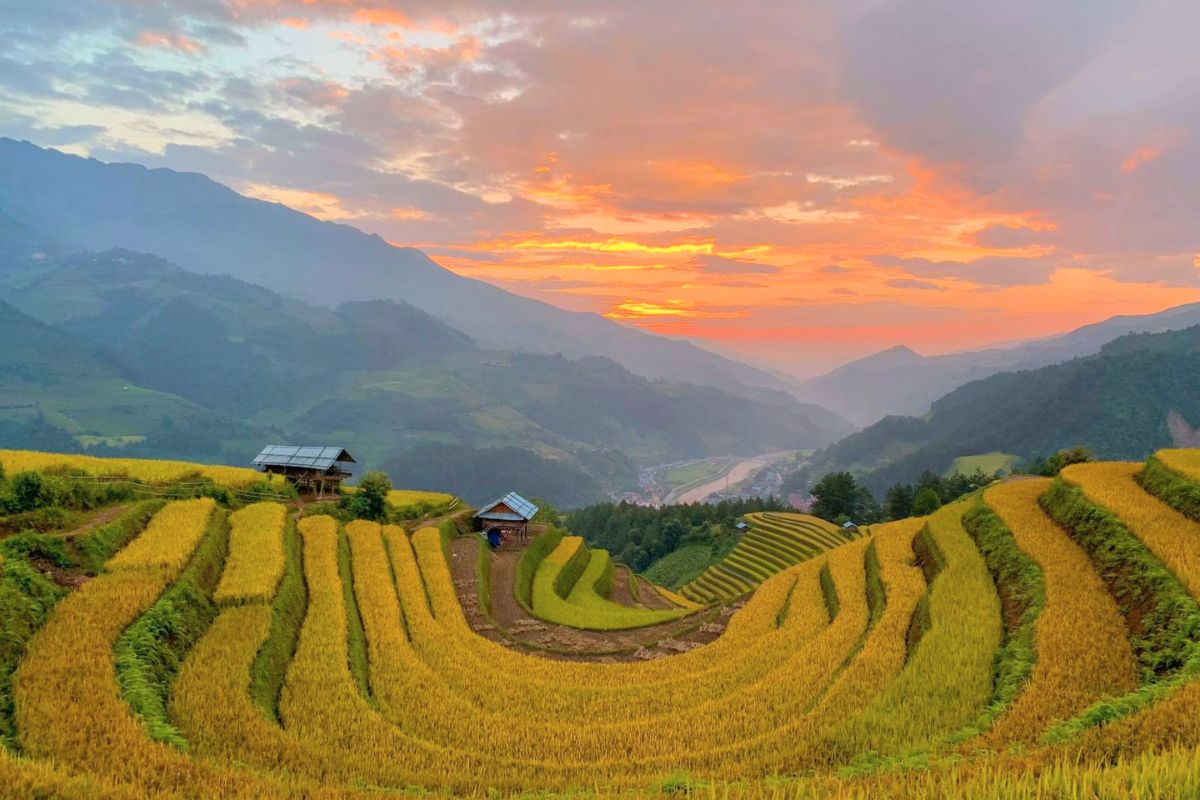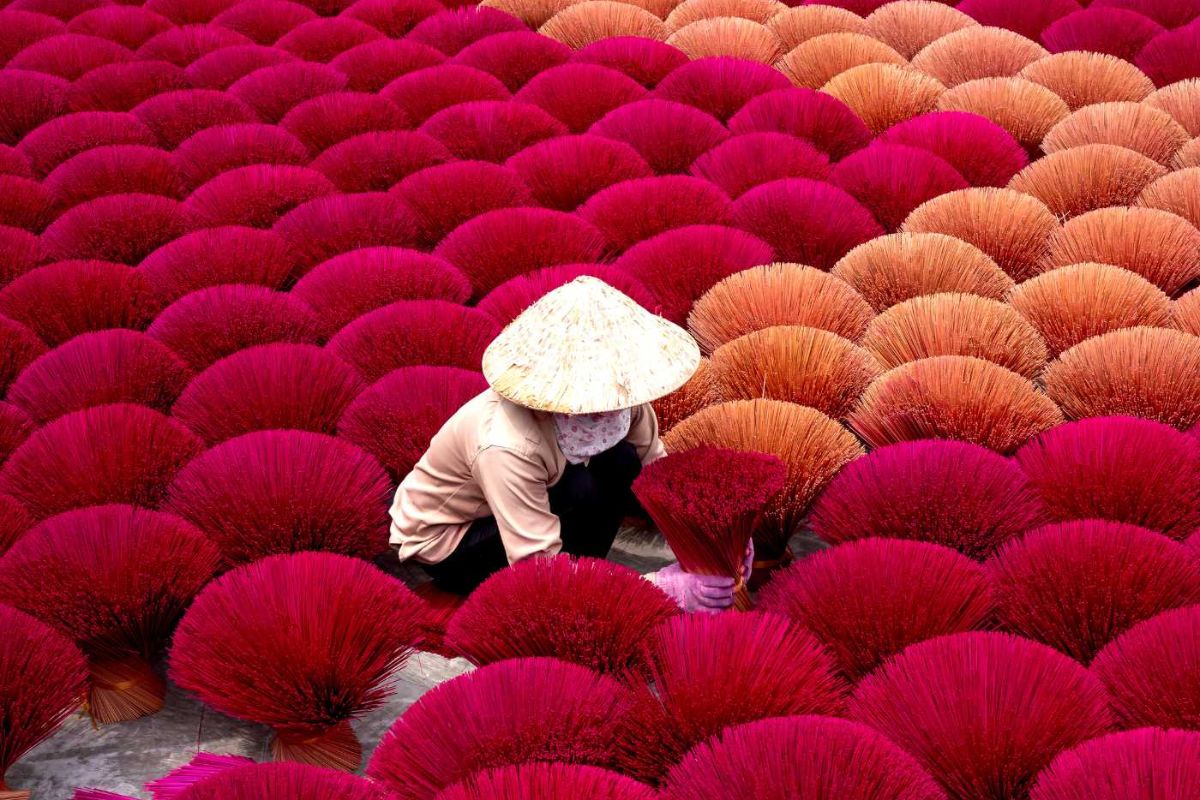TABLE OF CONTENT
Vietnam, a country steeped in history and vibrant culture, is also a paradise for food enthusiasts. As you traverse this Southeast Asian gem, you’ll quickly discover that the things to eat in Vietnam are not merely sustenance, but a reflection of the nation’s soul. The vibrant street food scene offers a treasure trove of quick bites, while traditional restaurants serve up time-honored recipes passed down through generations. In this article, we’ll explore the top 12 best things to eat in Vietnam, giving you a mouthwatering guide to the country’s most iconic and delicious dishes.
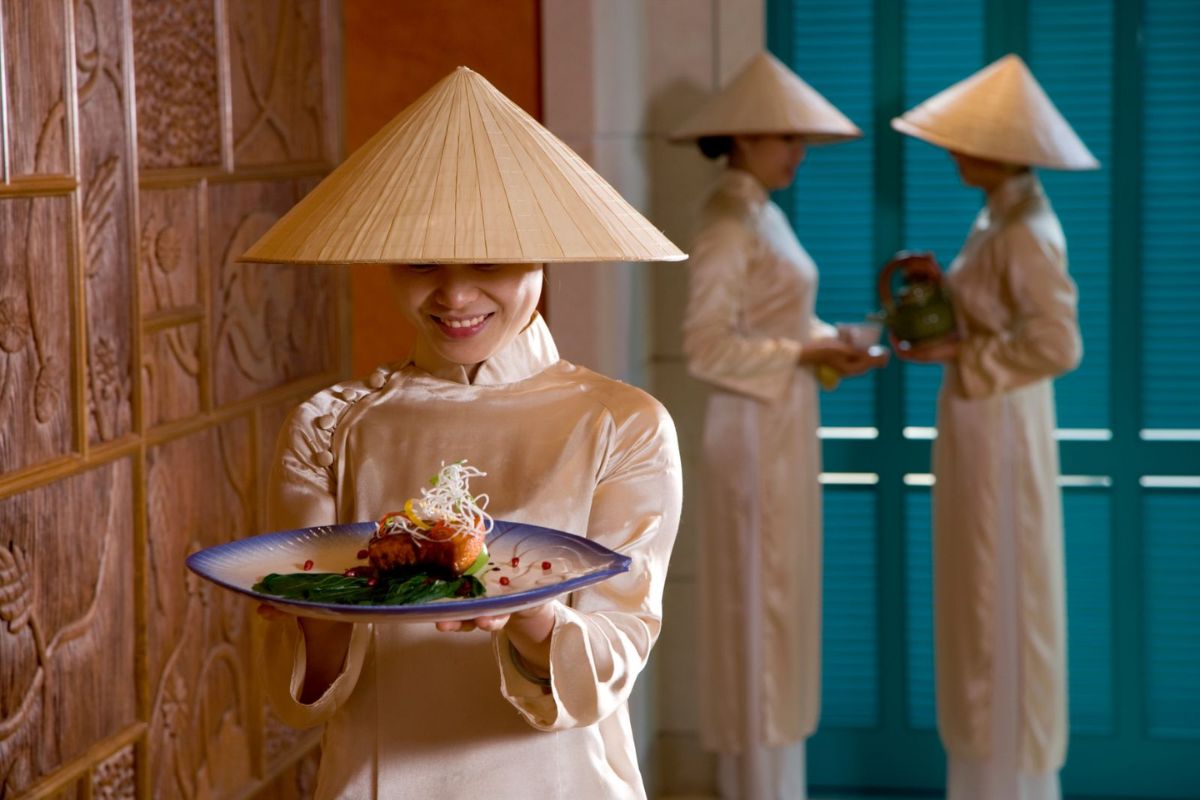
Top 12 best things to eat in Vietnam
Pho
No list of Vietnamese dishes would be complete without mentioning pho, the country’s national dish and arguably its most famous culinary export. This hearty soup consists of a flavorful broth made by simmering beef bones, oxtails, flank steak, charred onion, and spices for hours. The broth is then poured over rice noodles and topped with thin slices of beef or chicken, bean sprouts, lime wedges, and fresh herbs like basil and cilantro. Among the best things to eat in Vietnam, pho offers a perfect balance of flavors that epitomizes Vietnamese cuisine.
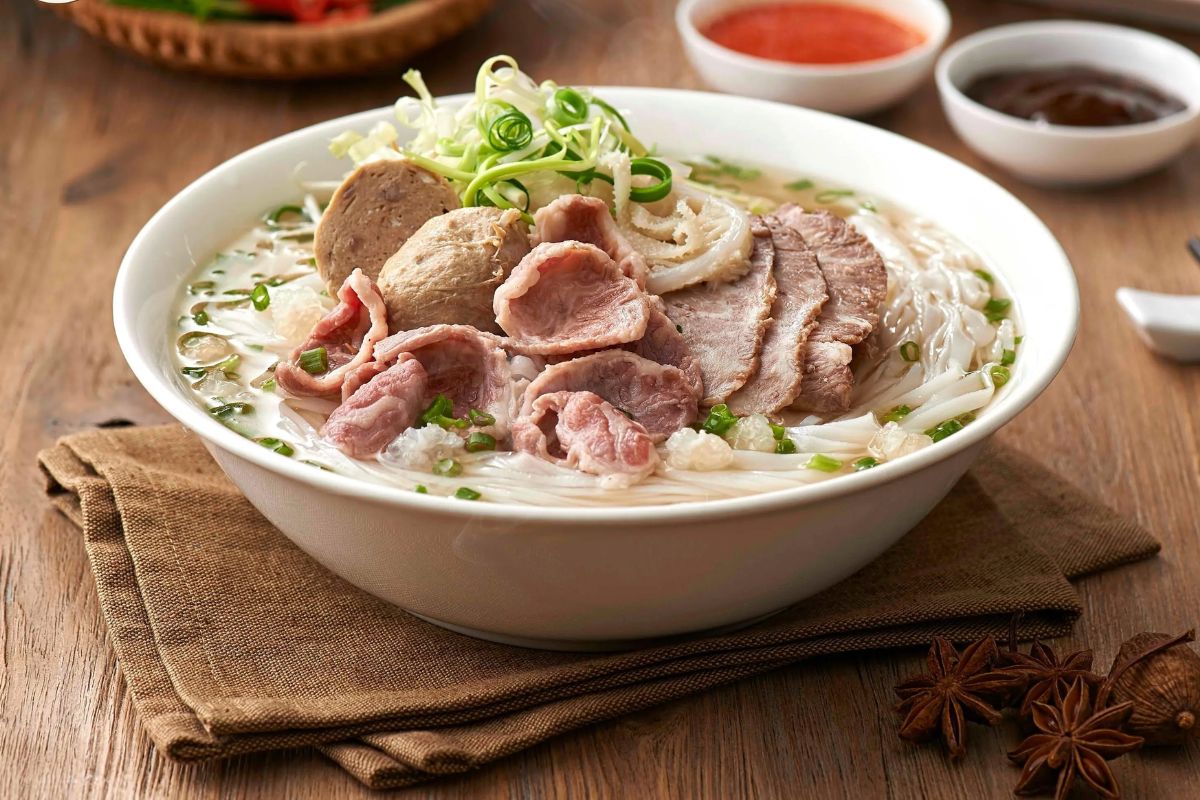
Banh mi
A delicious fusion of French and Vietnamese culinary traditions, banh mi is a must-try street food. The origins of banh mi can be traced back to the French colonial period when baguettes were introduced to Vietnam. Over time, locals adapted the sandwich to suit their tastes, incorporating traditional Vietnamese ingredients and flavors.
This crusty baguette is filled with a variety of ingredients like pâté, cold cuts, pickled vegetables, cilantro, chili, and mayonnaise. The combination of flavors and textures makes banh mi one of the most popular things to eat in Vietnam for both locals and tourists alike.
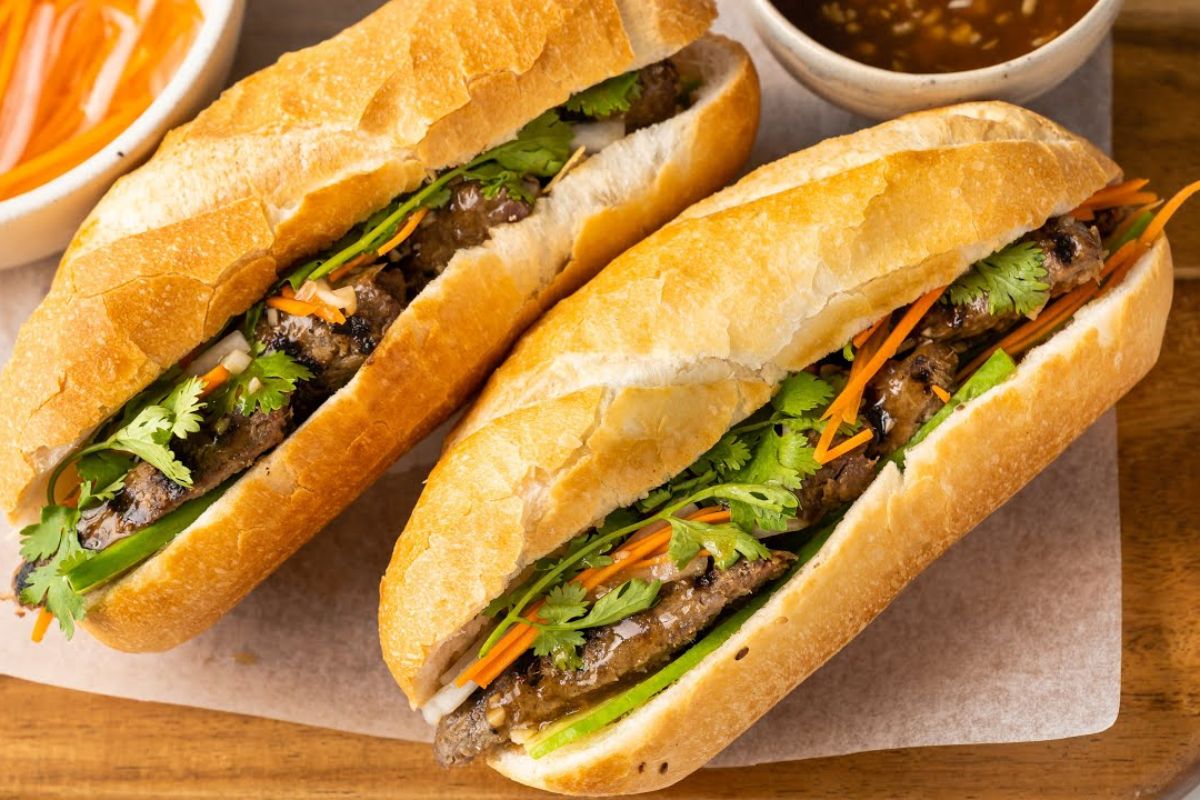
Bun cha
Bun cha is a Hanoi specialty that has gained international recognition as one of the best things to eat in Vietnam. This dish features grilled pork patties and slices served with a side of rice noodles, fresh herbs, and a tangy dipping sauce made from fish sauce, sugar, lime juice, and chili.
To eat bun cha, diners typically dip the noodles and herbs into the sauce before taking a bite of the succulent grilled pork. The combination of smoky meat, fresh herbs, and zesty sauce creates a harmonious blend of flavors that perfectly encapsulates the essence of Vietnamese cuisine.
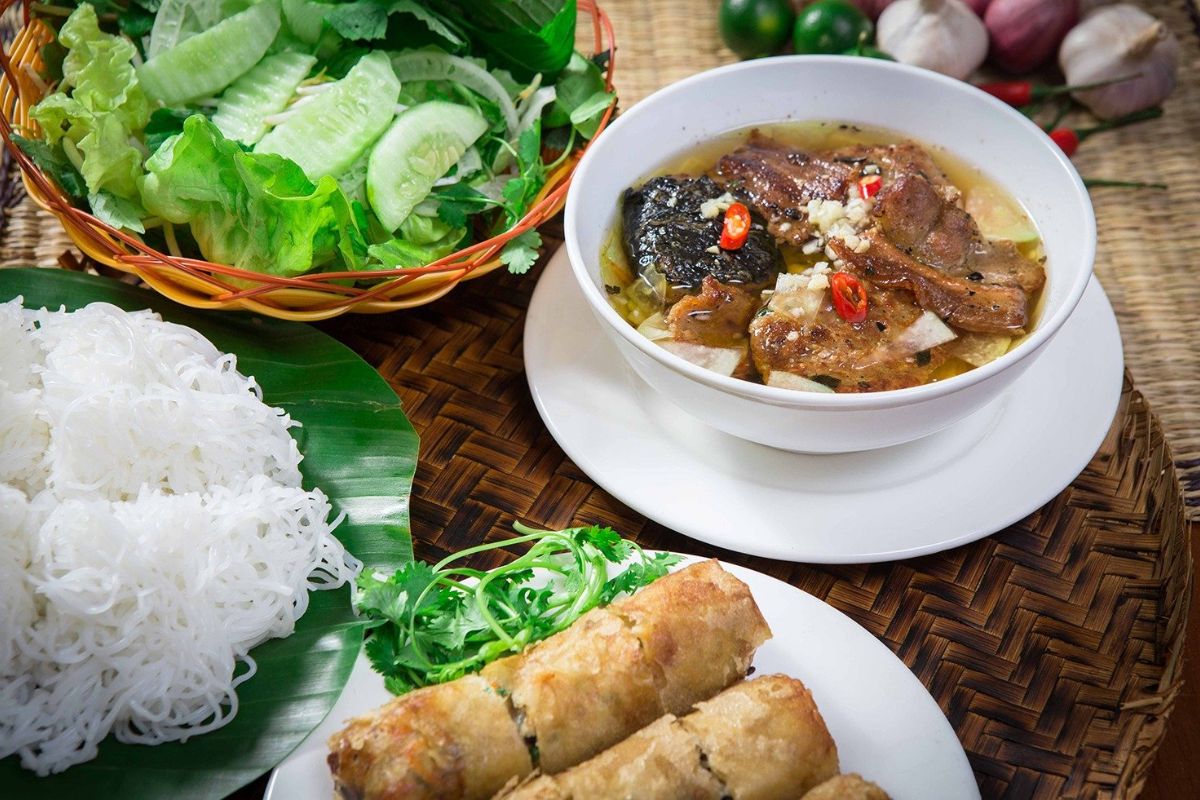
Com tam
Com tam, or “broken rice,” is a southern Vietnamese specialty that shouldn’t be missed. This hearty dish features fractured rice grains topped with grilled pork, a fried egg, and various sides like shredded pork skin and steamed egg cake. The dish is typically served with a side of nuoc mam, a sweet and savory dipping sauce made from fish sauce, sugar, lime juice, and chili. Com tam is a filling and satisfying meal that showcases the Vietnamese talent for combining multiple textures and flavors in a single dish.
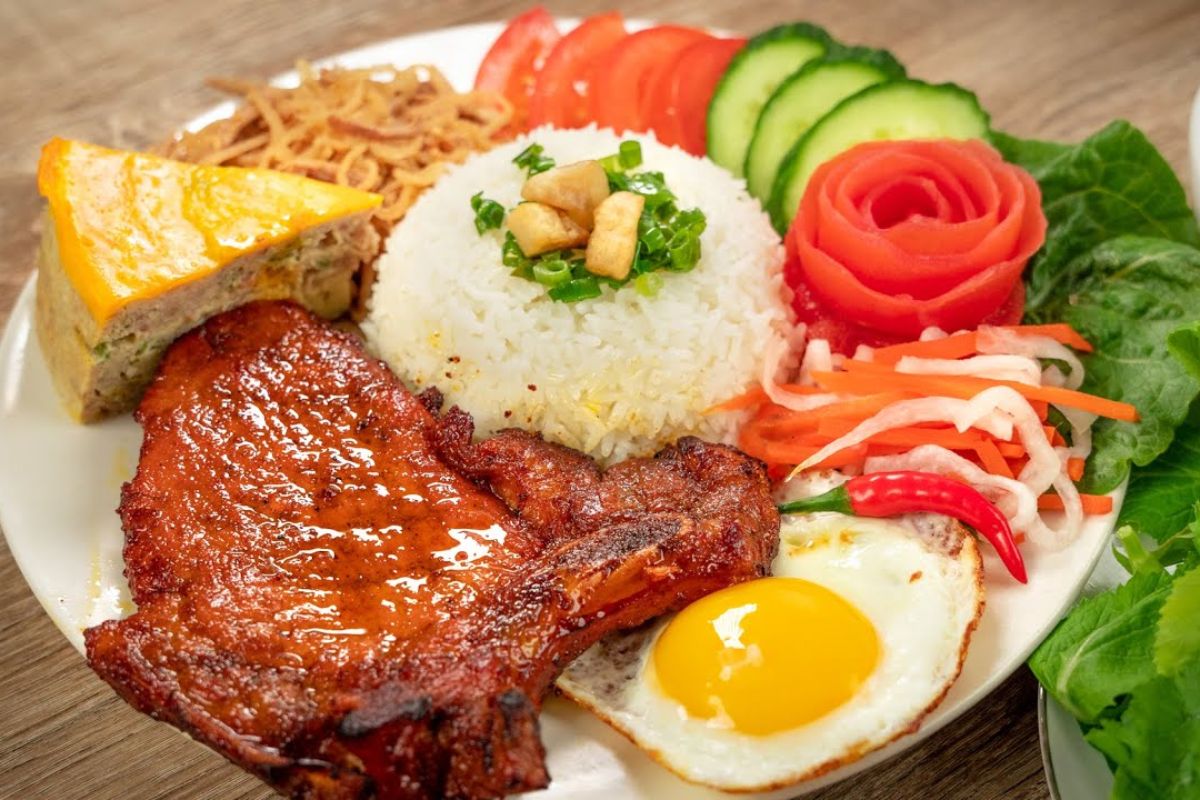
Bun bo Hue
For those seeking things to eat in Vietnam with a spicy kick, bun bo Hue delivers. Originating from the central city of Hue, this soup features thick rice noodles in a lemongrass-infused beef broth. The soup is then filled with tender slices of beef and often cubes of congealed pig’s blood.
What sets bun bo Hue apart from other Vietnamese soups is its distinctive spicy and citrusy flavor, achieved through the use of chili oil and lemongrass. The dish is typically garnished with bean sprouts, lime wedges, and fresh herbs, adding freshness and crunch to the hearty soup, making it one of the best things to eat in Vietnam.
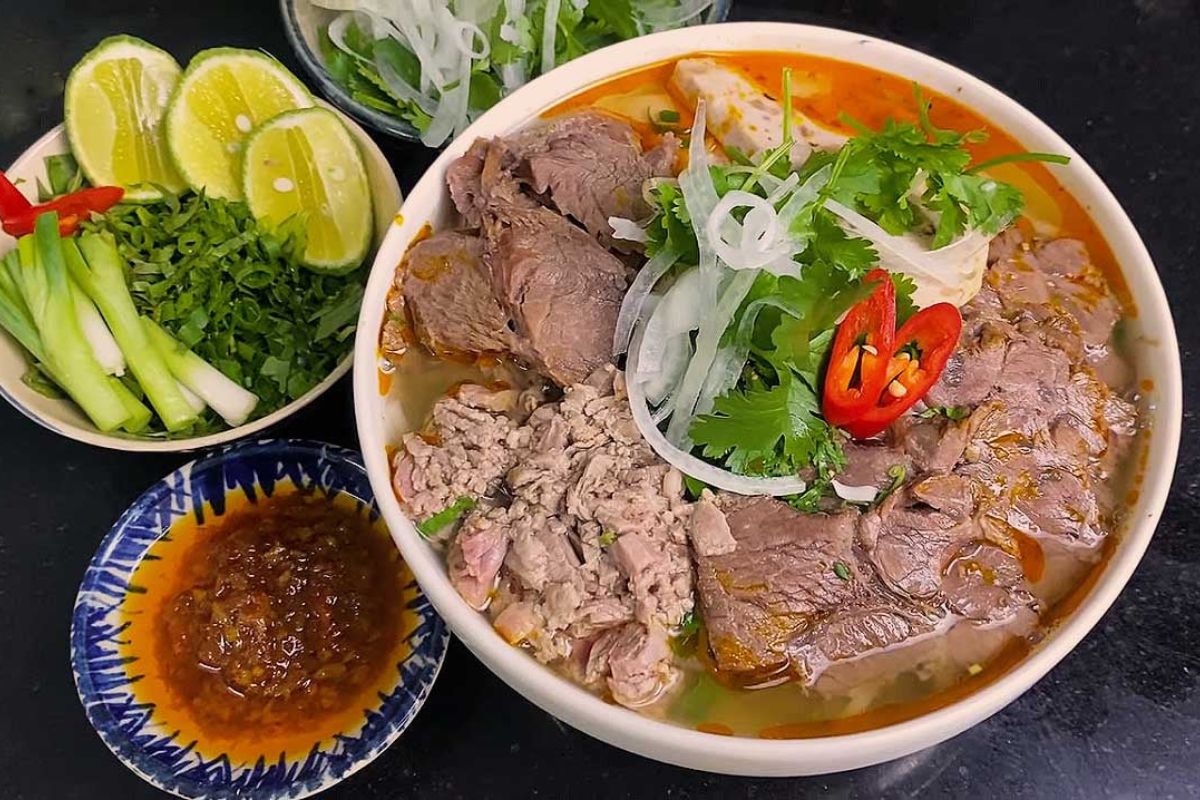
Com ga
Com ga elevates the simple combination of chicken and rice to new heights. The dish consists of fragrant rice cooked in chicken broth and served with tender poached or grilled chicken, cucumber slices, and a side of ginger-infused fish sauce for dipping. While com ga can be found across the country, the central city of Hoi An is particularly famous for its version, which features shredded chicken and rice colored yellow with turmeric.
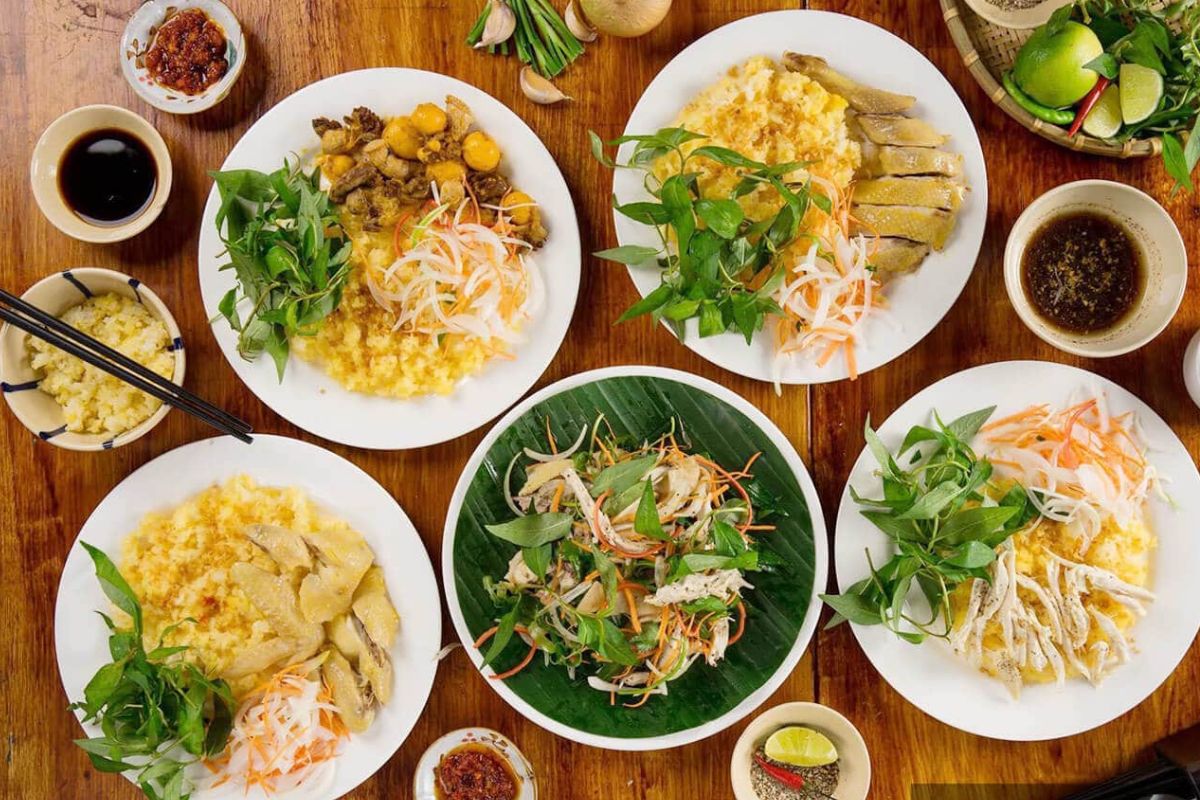
Mi Quang
Hailing from central Vietnam, Mi Quang is one of the best things to eat in Vietnam which captivates with its minimal broth and vibrant yellow noodles. The noodles are topped with shrimp, pork, chicken, or quail eggs, along with fresh herbs, peanuts, and crispy rice crackers.
What makes Mi Quang stand out is its vibrant yellow color, achieved by adding turmeric to the noodles. The dish is typically served with a side of fresh greens and herbs, allowing diners to customize their bowl to their liking.
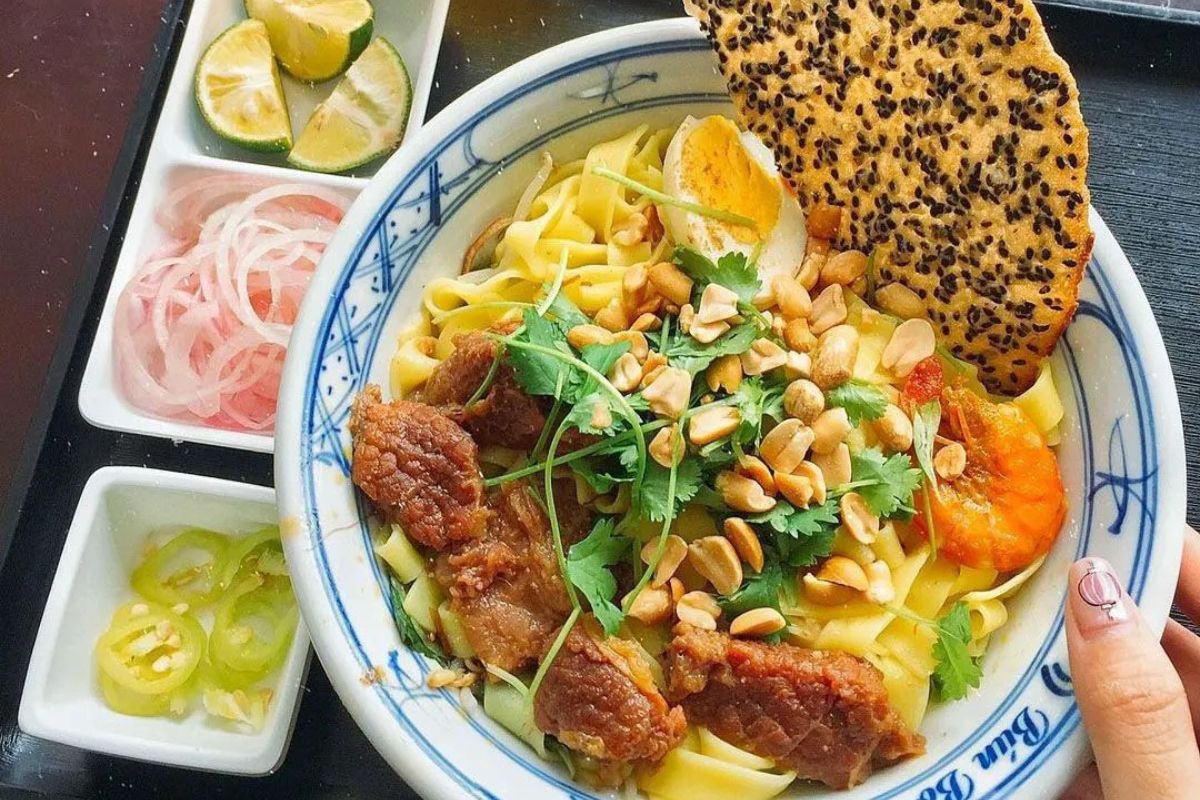
Banh xeo
Banh xeo, which translates to “sizzling cake,” is a crispy savory pancake that’s one of the most popular things to eat in Vietnam. The pancake is made from rice flour, coconut milk, and turmeric, giving it a distinctive yellow color. It’s filled with pork, shrimp, bean sprouts, and onions, then folded in half and served with a side of fresh herbs and nuoc cham dipping sauce.
To eat banh xeo, diners typically wrap a piece of the pancake in lettuce or rice paper along with herbs, then dip it in the sauce before taking a bite. The combination of crispy pancakes, tender filling, fresh herbs, and tangy sauce creates a delightful explosion of flavors and textures.
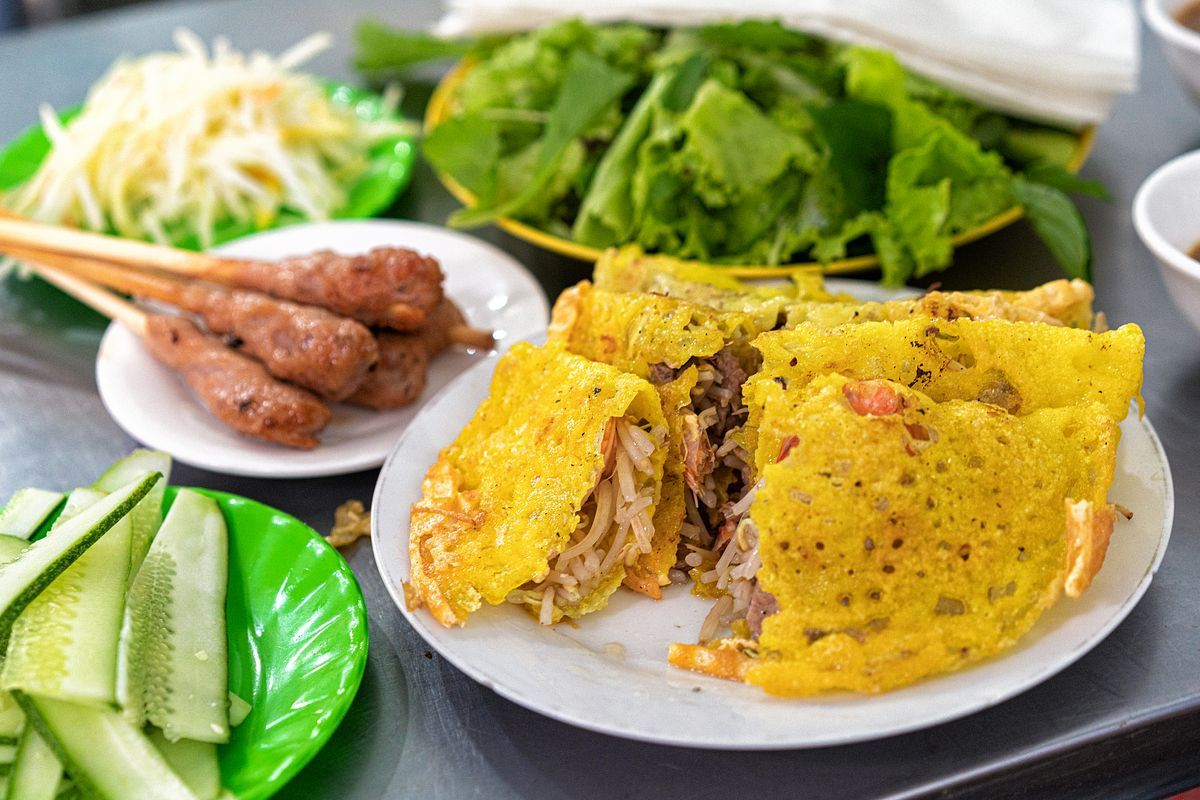
Goi cuon
Goi cuon, also known as fresh spring rolls or summer rolls, is a light and refreshing appetizer that’s perfect for Vietnam’s hot climate. These translucent rice paper rolls are filled with shrimp, pork, rice noodles, and fresh herbs like mint and cilantro.
The rolls are typically served with a rich peanut dipping sauce or nuoc cham, depending on the region. Goi cuon is not only delicious but also a healthier alternative to fried spring rolls, making them a popular choice among health-conscious diners.
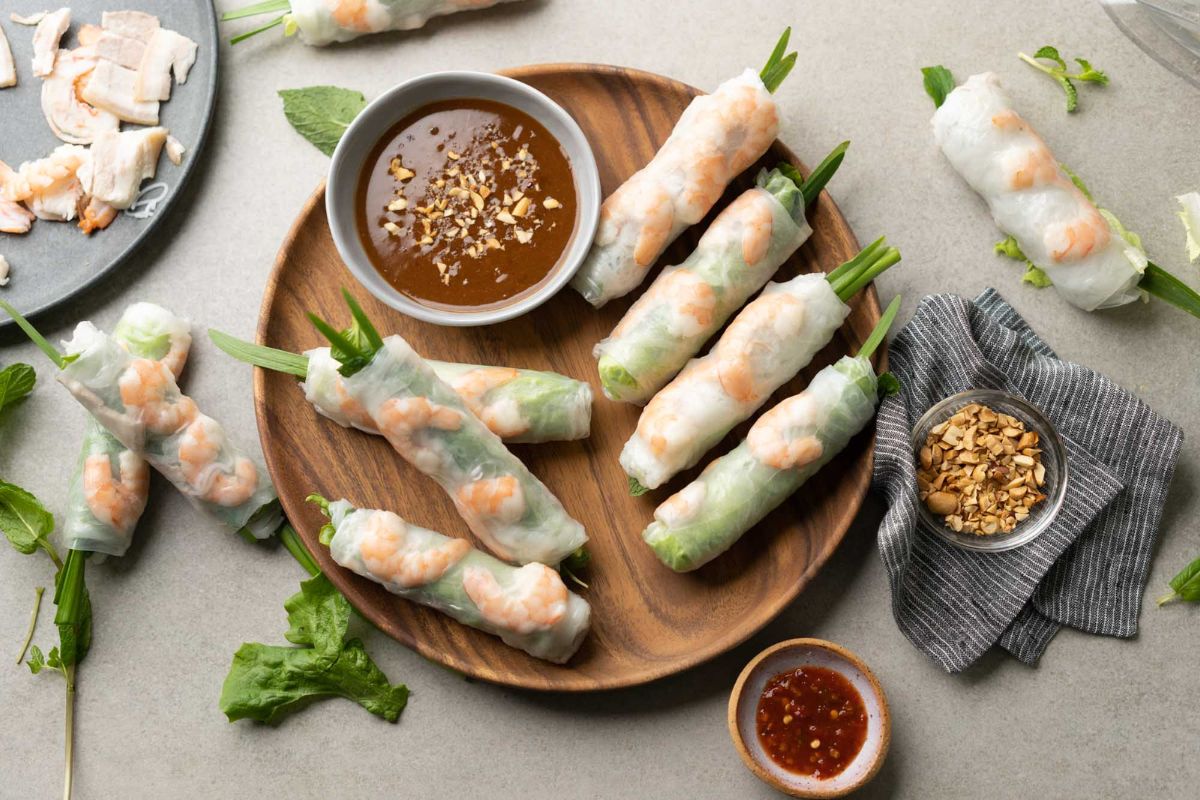
Banh cuon
Banh cuon are delicately steamed rice rolls filled with ground pork, wood ear mushrooms, and shallots. These translucent rolls are typically served for breakfast and are accompanied by a side of fried shallots, fresh herbs, and a dipping sauce made from fish sauce, lime juice, and chili.
The texture of banh cuon is what makes them truly special – the rice sheets are incredibly thin and soft, while the filling provides a satisfying contrast in texture. The dish is light yet flavorful, making it one of the best things to eat in Vietnam and a perfect way to start the day.
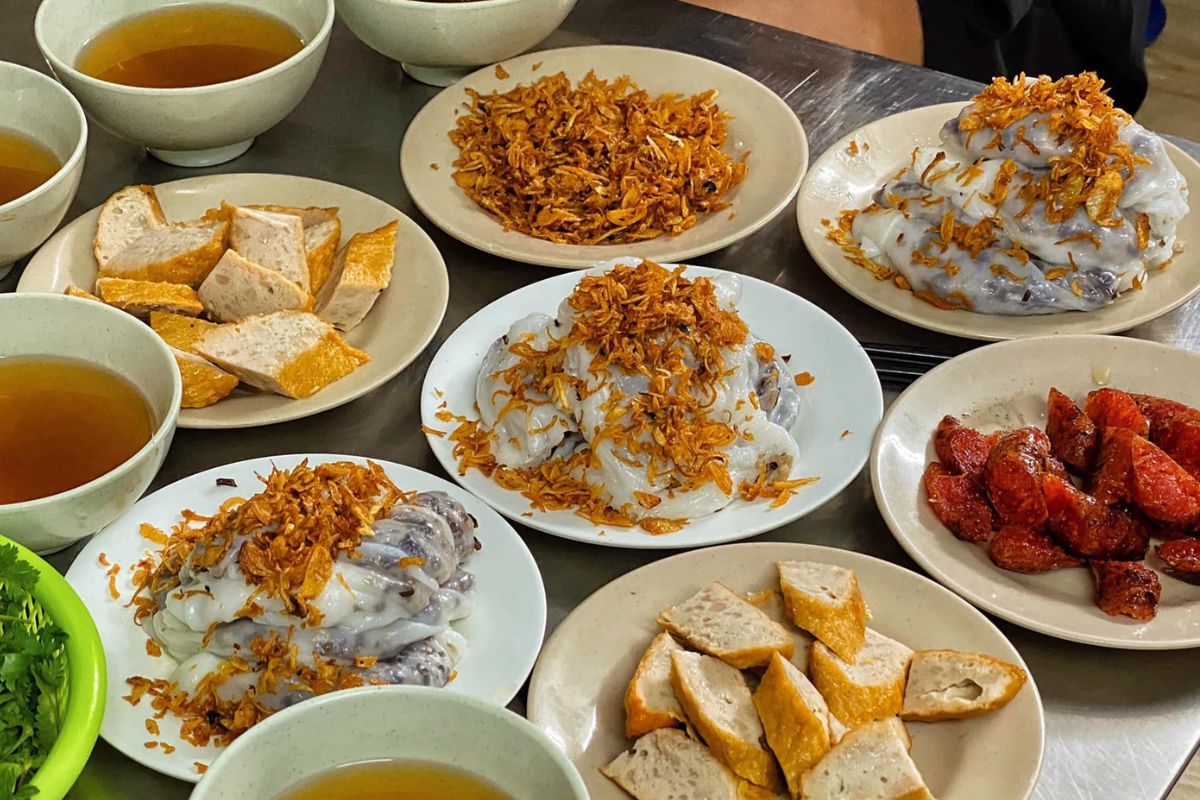
Bun dau mam tom
Bun dau mam tom is a dish that might challenge Western palates but is beloved by many Vietnamese. It consists of deep-fried tofu, boiled pork, and rice vermicelli served with a pungent fermented shrimp paste called mam tom.
The key to enjoying this dish is balancing the strong flavor of the shrimp paste with the other components. The crispy tofu and tender pork provide textural contrast, while fresh herbs and vegetables help to cut through the richness of the mam tom. While it may take some getting used to, Bun dau mam tom offers a unique taste of authentic Vietnamese cuisine.
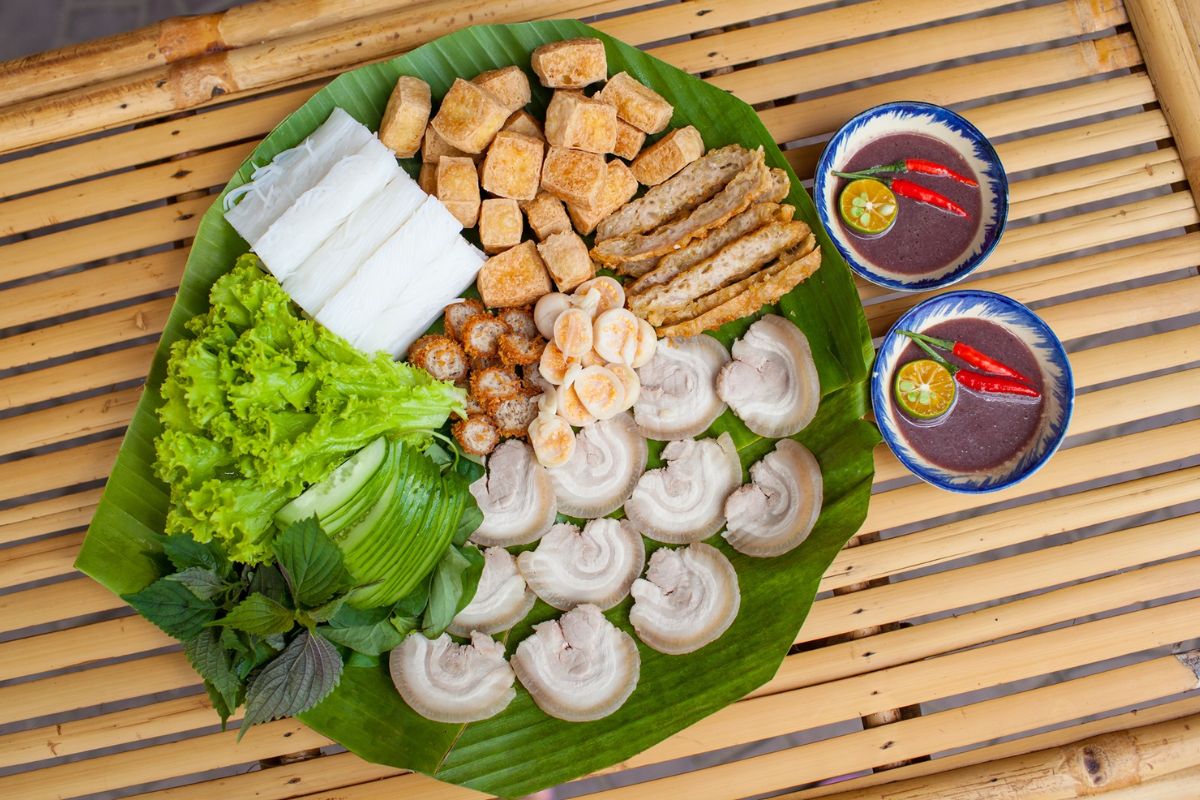
Cao lau
Cao lau, exclusive to Hoi An, is one of the most intriguing things to eat in Vietnam. The dish features thick, chewy noodles served with slices of pork, crispy crackers, bean sprouts, and fresh herbs. What makes cao lau special is the noodles themselves, which are said to be made using water from the Ba Le well and ash from a particular type of tree.
The result is a dish with a distinctive texture and flavor that can’t be found anywhere else in Vietnam. While the exact recipe remains a closely guarded secret, cao lau has become a must-try dish for visitors to Hoi An.
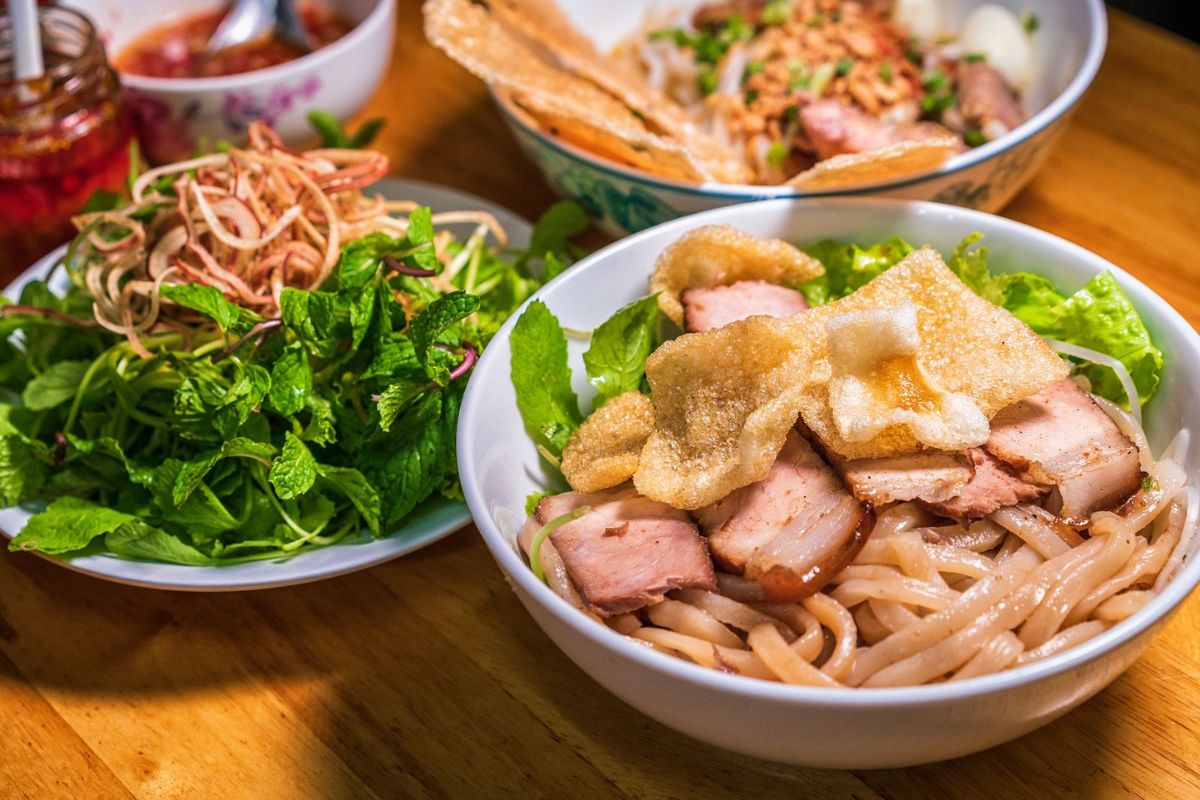
You may like:
Street Food in Vietnam: Top 12 Best Vietnamese Street Foods
Top 10 Places to Eat in Vietnam: Vietnam’s Best Local Restaurants
Friendly reminder: Things not to eat in Vietnam
While Vietnam offers a wealth of delicious dishes, it’s important to exercise caution to ensure a safe and enjoyable culinary experience. Here are some things to be mindful of:
Raw or undercooked meats: Avoid dishes containing raw or undercooked meats, especially pork and chicken. Stick to well-cooked meats to reduce the risk of foodborne illnesses.
Tap water: Stick to bottled water for drinking and brushing your teeth. Avoid tap water, even in hotels, as it may contain harmful bacteria.
Ice in drinks: Be wary of ice in drinks, especially from street vendors. It’s often made from untreated water and can cause stomach issues.
Raw vegetables and unpeeled fruits: While Vietnam’s fresh produce is delicious, raw vegetables and unpeeled fruits washed in tap water can be risky. Stick to cooked vegetables and fruits you can peel yourself.
Street food from questionable vendors: While street food is a highlight of Vietnamese cuisine, choose vendors wisely. Look for busy stalls with high turnover and proper food handling practices.
Unwashed herbs: While fresh herbs are integral to Vietnamese cuisine, ensure they’ve been properly washed or stick to cooked dishes when in doubt.
To minimize risks:
- Eat at reputable restaurants and food stalls with high turnover.
- Look for places where locals eat, as they often know the best and safest options.
- Carry hand sanitizer and use it before meals.
- If you have a sensitive stomach, ease into the local cuisine gradually.
- Consider taking probiotic supplements to support your digestive system.
Join in quality tours to ensure your Vietnam experience is perfect:
Vietnamese cuisine is a treasure trove of flavors, textures, and aromas that reflect the country’s rich cultural heritage and diverse regional influences. From the iconic pho to lesser-known specialties like cao lau, each dish tells a story of Vietnam’s culinary evolution. By exploring these 12 best things to eat in Vietnam, you’ll gain a deeper appreciation for the complexity and sophistication of Vietnamese food.
–
If you’re planning a trip to Vietnam to embark on your own culinary adventure, consider reaching out to Asia Encounter. As experts in Southeast Asian travel, we can help you create a customized itinerary that includes food tours, cooking classes, and visits to the best local eateries. With our knowledge and expertise, you’ll be able to fully immerse yourself in Vietnam’s vibrant food culture and create unforgettable gastronomic memories.

